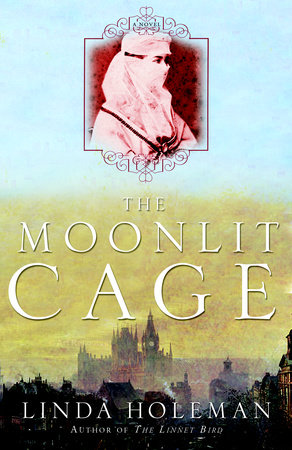The Moonlit Cage Reader’s Guide
By Linda Holeman


1. Answer the question the novel’s narrator, Daryâ, poses in the prologue: “Read my story, and as you do, ponder this question. Am I truly wicked? And when it is over, you can be the judge.” (page 2).
2. Mâdar Kalân, Daryâ’s grandmother, looms large in Daryâ’s life, more so after the old woman tragically dies. Why does she have such an impact on Daryâ? What effect do Daryâ’s grandmother’s words have throughout the novel?
3. The book opens with a poem by the Sufi poet Rumi, “Some Kiss We Want” (page vii). What does this poem mean in the context of what occurs in The Moonlit Cage? At points in the novel, Daryâ repeats this quote from Rumi: “Live where you fear the most,” (page 236). What does this statement come to mean for Daryâ?
4. “I knew that day that I possessed power. And once I allowed it to flow through me, it was as impossible to rein in as the swollen river that overruns its banks,” (page 25). Power and strength are prominent themes throughout The Moonlit Cage; talk about what kind of power was at Daryâ’s disposal and how she uses it, and about what strengths she exhibits.
5. Why is Daryâ so intimidated by her father’s wife Sulima? Are Daryâ and Sulima similar in any way? Consider the curse of barrenness that Sulima sets upon Daryâ; why is this such a horrible affliction for a woman in her culture?
6. Discuss the role of religion in the novel. In terms of Islam, why do you think Daryâ takes refuge in a religion that shuns her as a woman? How do her feelings toward her faith change as the novel progresses? What do you think of the prejudice Daryâ experiences on the part of Hindi women she meets in India, the Christians, and others in London?
7. “My feelings for my mother were more complex” (page 11), says Daryâ. What are Daryâ’s feelings for her mother, and why are they complicated? How are her feelings for her mother different than those for her father? How do Daryâ’s feelings toward each of her parents change as the novel progresses?
8. What do you think of David Ingram? How do you think his heritage shaped his personality? Did you expect that he and Daryâ would ultimately end up together? Why or why not?
9. “It would be now as it had been on the caravan from Sukkur: our differences–not just man and woman, but color and position–completely clear” (page 278), Daryâ says. What are the differences between herself and David that Daryâ refers to?
10. Should Daryâ have accepted Osric Bull’s offer to take her to London? Why doesn’t she leave sooner, when she discovers his nefarious purpose for bringing her to his home? When David comes to Bull’s house to rescue her, why does she push him away?
11. Consider the role of women in The Moonlit Cage. How do cultural and religious influences contribute to the perception and treatment of females, from Daryâ’s Tajik village to the streets of London? The novel’s events take place 150 years ago; how and where have these attitudes changed, or stayed the same, since then? “We were women, brought to places by men,” Daryâ observes in chapter 38 (page 384). Is this sentiment really true in Daryâ’s case?
12. One of the novel’s themes is that of home. What does home mean to Daryâ, to David, to some of the other characters?
13. Did it surprise you to learn in the epilogue that Daryâ and David were having a child? What about Daryâ’s premonition that the baby will be a girl? Does the dream she describes in chapter 18 (page 162) foreshadow the book’s ending?
14. What do you think the book’s title means?
Just for joining you’ll get personalized recommendations on your dashboard daily and features only for members.
Find Out More Join Now Sign In